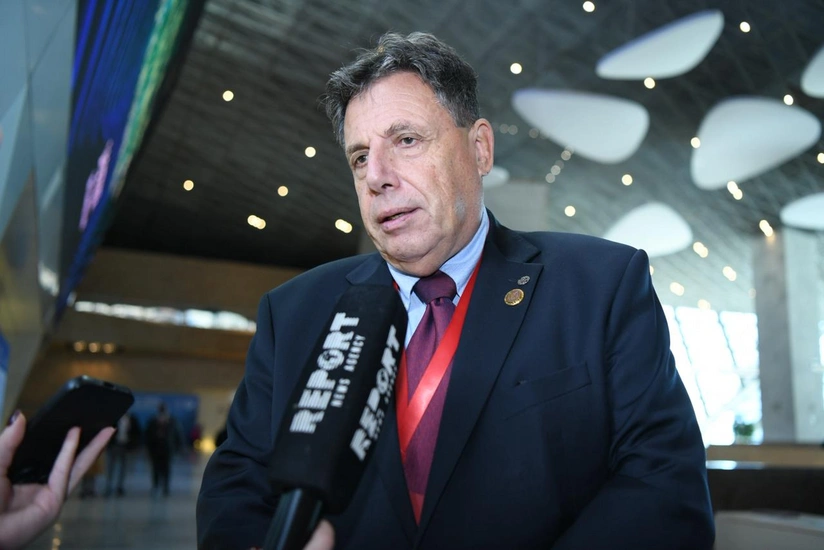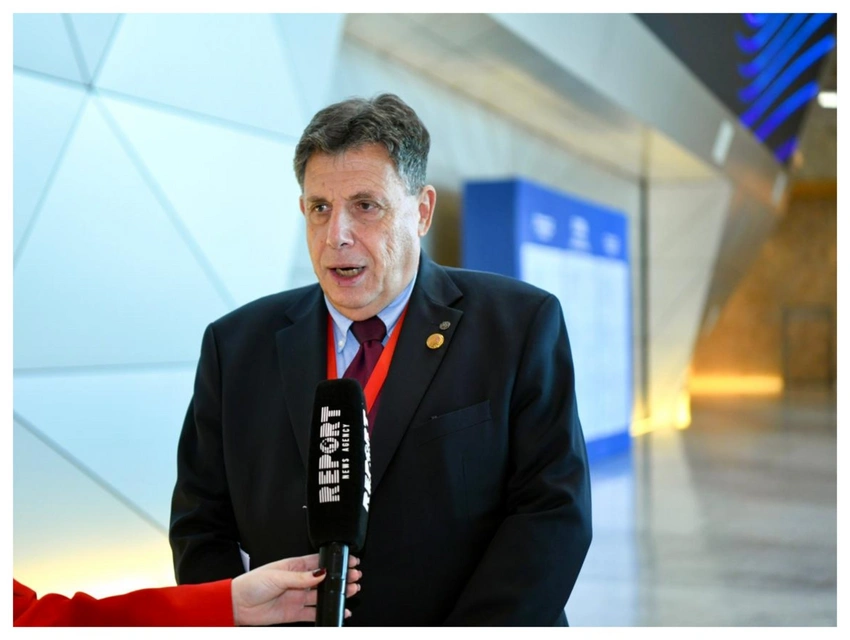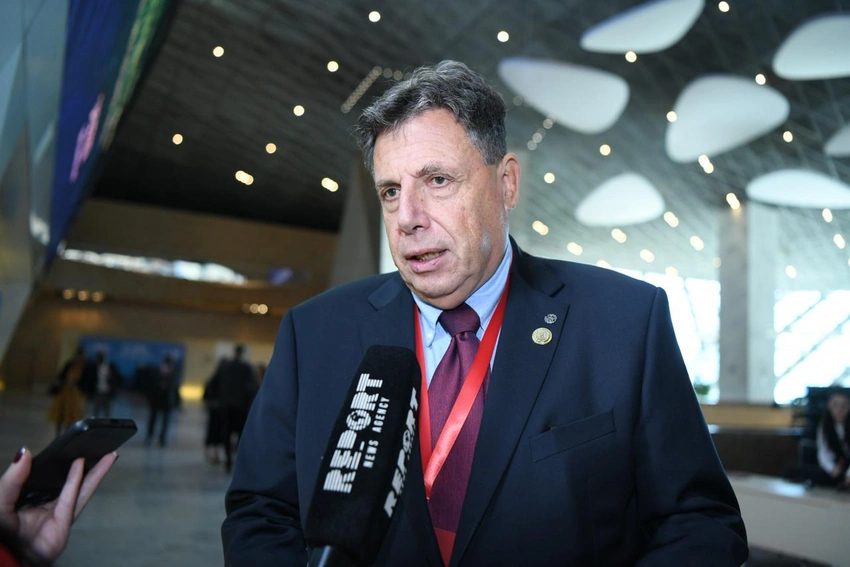IAJ head: Balance of government powers disrupted in many countries - INTERVIEW
- 14 October, 2025
- 13:57

President of the International Association of Judges (IAJ), Duro Sessa, gave an interview to Report on the sidelines of the international conference themed "Relations between the judiciary and the other two powers of the state."
– Mr. Sessa, first of all, we would like to know why the topic of relations between the judiciary and the other branches of government has recently become more relevant.
– We are observing that in many countries, the delicate balance between the three powers of government has been disrupted. The executive and legislative powers are using their authority and influence to weaken the judiciary. However, the independence of the judiciary is the foundation of our work. We cannot function without independence. It is impossible to carry out our mission without it. That is why we believe it is very important to bring this issue back to the agenda and to hold such events to revive dialogue between the three powers of government.

– In your speech, you talked about the relationship between the judiciary and other powers of government from a European perspective. What mechanisms do you consider most effective in maintaining a balanced relationship?
– In my opinion, everything has already been established. The principles are enshrined in various documents and in the judgments of the European Court of Human Rights and the European Court in Luxembourg. If we remain committed to these principles and preserve the essential elements of judicial independence – such as the term of office, financial status, and procedures for appointment and promotion of judges – everything will be fine. Because the judiciary very rarely tries to go beyond its powers and duties. We never try to interfere in the domain of the executive or legislative branches.
– The global rise of populism, disinformation, and political pressure also affects judicial systems. What international initiatives is IAJ implementing to address such challenges?
– In fact, this is our main area of activity – encouraging judges to preserve their independence. Because it is extremely important for every judge to feel capable of making decisions independently and freely, based on the law. They must never give in. If they do not surrender, they will not lose their standing in a globalized world where interference between branches of power is so open. That is why it is vital to remain committed to proven, most effective principles.
– The rapid development of artificial intelligence and digitalization is also affecting judicial processes. What do you think these effects are?
– There are a number of international documents on artificial intelligence. Of course, we acknowledge the existence of this technology and cannot ignore it. We should use AI as a tool to help deliver fairer decisions, but at the same time, we must approach it critically. Because relying solely on artificial intelligence would not be right. In judging, emotions and a sense of justice are also important.

– Climate change, migration, and human rights issues are increasingly appearing on the global judicial agenda. How should the judiciary adapt to these new challenges?
– New types of cases that courts face are of great importance not only for the parties involved but also for society. For example, climate-related litigation falls into this category. Fortunately, most of these cases are being handled not at the international but at the national court level. But of course, we follow the decisions of those courts on this matter.
– Azerbaijan has taken significant steps in recent years toward judicial reforms. How do you assess these reforms? Also, what are the future cooperation prospects between IAJ and the Azerbaijan Union of Judges?
– The Azerbaijan Union of Judges is a valued member of our organization, and it is encouraging that it was ready to organize this large-scale event. Because this is not an easy task. As we can see, it is a very complex process. The reforms we have heard about are, of course, welcomed because they are aligned with our principles. But at the same time, it is important to implement them as intended. Because those principles were created exactly for this purpose.
